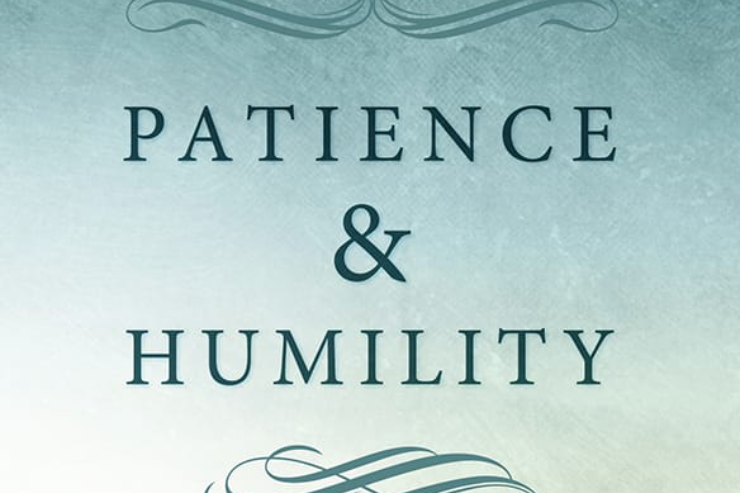A review of Patience and Humility, Will Bernard Ullathorne, O.S.B., Sophia Institute Press — May 1, 1998
So—it’s the third week of Lent and you’re still trying to decide what to take on or give up. Some of our Lenten goals go well, others not so well. If you’re stuck, you may want to start small. Finding a book entitled Patience and Humility by William Bernard Ullathorne, O.S.B. peaked my interest for the start of my Lenten reading. First published in London in 1908 and again in 1945, this edition was published by Sophia Institute Press in 1998.
Linking patience and humility together doesn’t seem obvious at first and likely these are virtues that most of us struggle with. They require prayer and introspection and what better time than Lent to pick up this book and get to work. This isn’t a long book—one hundred thirty-six pages. A good evening’s read.
Lack of patience is a thorn that pricks all of us and is an offshoot of pride. Impatient people are tiresome. We all know people who are hard to be around. Patience is necessary to quiet the soul, discipline our minds, and teach us that in practicing this virtue we perfect ourselves in God’s eyes. Patience not only brings us closer to God, but improves our prayer life. According to Fr. Ullathorne, “Patience is mostly concrned in overcoming the restlessness of nature, in enduring adversities, in resisting temptations, and in subduing or keeping away impatience, anger and sadness.” In other words, resting in God—no matter what. Interestingly, an injury, real or imagined, causes more impatience and disorder within us. The imagination of an injury is far more frequent, especially to a person with overweening pride.
As for humility, we can only know this virtue by experience. Humility requires self-denial and self-renunciation. Another important path to humility is finding the good in others. According to Fr. Ullathorne this is the “humility in its exercise toward our neighbor, it is not a reverence given to human nature, but to the gifts of God within that nature.” Keeping ourselves at God’s center, keeps God at our center. All virtues, practiced with love of God, lead back to Him.
This book is excellent for meditation on all virtues. Fr. Ullathorne writes as a scholar, but never confuses or causes one to read and re-read. His theology and his prose are on point.
At times, we accomplish more by taking small steps, or bites, and digesting them over time to have a better effect. If Lent weighs you down with too much anxiety remember Fr. Ullathorne’s admonishment. “Anxiety is not in the things about which we are anxious. It is caused by taking our solicitudes and uncertainties into our own interior and there making them the subject of our troubles, disquieted and overstrained feelings.”
“The human virtues provide the foundation for the supernatural ones. These in turn provide us with constant encouragement to behave in a more truly human way.” (In Conversation with God, Francis Fernandez)














